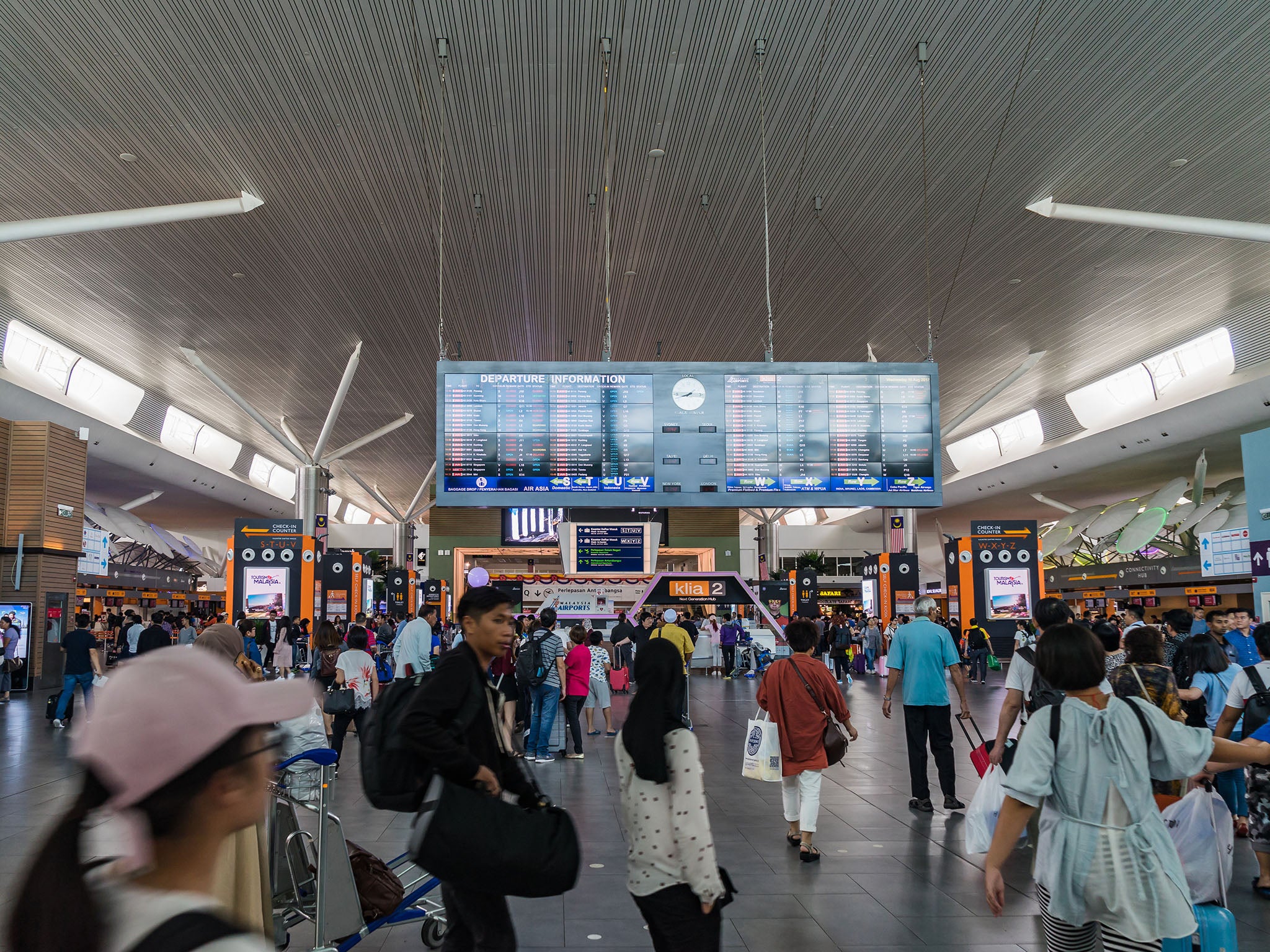Why are flights to Kefalonia becoming more costly?
Simon Calder answers your questions on escalating fares, when best to check out Paris and the trouble with long airport queues


Q We have recently left the corporate world to run a villa on the Greek island of Kefalonia. It’s been a four-year project to build – blood, sweat and tears along the way – but we are finally there.
I was wondering if you had any Insight as to why the prices of flights to Kefalonia from the UK have increased so dramatically this year. I understand that the collapse of Thomas Cook may have had an impact, but the prices to other islands do not seem to have increased by the same rate. This is obviously concerning as people are choosing not to come to Kefalonia.
Paula C
A It is certainly shaping up to be a profitable summer for the airlines flying to Greece. I have just checked the lowest fares between UK airports and the lovely Ionian island of Kefalonia for travel out on Saturday 1 August, back a fortnight later. The lowest fare I can find is on easyJet from Bristol at £355 return. This does not include checked baggage – the smallest 15kg bag will add an extra £60 return. (You might want to remind prospective customers that they they can avoid the luggage charge on some airlines by taking advantage of generous cabin-baggage allowances; easyJet currently allows a volume of 63 litres and has no weight limit).
Next “cheapest” is British Airways from Heathrow, surprisingly, at £380 return – and with a free allowance of two cabin bags, weighing a total of 46kg.
From Manchester, which was the headquarters for Thomas Cook Airlines, the only carrier on those dates is Jet2, which is currently priced at £469 return (with a meagre 10kg baggage allowance). For a flight of 1,500 miles each way, that may look expensive, but it is what the market is prepared to pay.
At other times in the summer, fares are much lower – in midweek, in mid-May, easyJet has a return flight from Gatwick at £112.
In “normal” summers, airlines would note the high fares prevailing to Kefalonia and elsewhere in Greece and add capacity to exploit the demand. But the continued grounding of the Boeing 737 Max after two fatal crashes means there is a significant shortage of capacity in the market.
The collapse of Thomas Cook, together with this prolonged shortage of suitable aircraft, is likely to keep prices high this summer. But the standard practice in aviation after a summer with very high fares is for capacity to pile in the following year, leading to a fall in prices. Not helpful for 2020, but perhaps for next summer.

Q We have been planning to visit Paris for a few days in early February for my husband’s significant birthday, intending to stay at Hotel Place des Vosges. We don’t have reservations or Eurostar tickets yet as we’ve been waiting for the strikes to resolve.
What do you make of the situation? How difficult will it be to get around Paris? We’re not young and will need transport. Merci!
Noll and Bob R
A The nationwide strikes against President Macron’s pension reforms that began on 5 December last year have caused massive problems for the French population, of course, but also difficulties for visitors to Paris and elsewhere in France – with most of the Metro largely closed down for much of the time, and tourist attractions such as the Louvre and the Musee d’Orsay either partially closed or with restricted hours.
Yet in this industrial relations war of attrition, the effects of the strikes are gradually diminishing. Certainly, observing transportation – trains, metro and for that matter planes – the stoppages are having less and less effect. Eurostar has not cancelled trains for more than a week.
Therefore early February could be an ideal time to go because you will benefit from the lack of crowds (and desperation among hoteliers and restaurateurs for your custom), while still being able to get around reasonably easily. Incidentally, unless you have set your hearts on a particular hotel I would shop around for a good accommodation deal.
The converse school of thought is that, with so much choice around (not least on Eurostar trains to Brussels and Amsterdam), you should leave Paris for another time. But my gut feeling is that a February visit would be richly rewarded.
Happy significant birthday to your husband wherever he spends it.

Q We spent new year in Phuket, Thailand, and all was fine until we came home. We had booked a return flight from London to Kuala Lumpur on Emirates and then an onward trip on AirAsia to Phuket and back.
Coming back, our AirAsia flight was late taking off. We then got stuck in a nightmare passport queue at Kuala Lumpur airport for two hours. As a result we missed our flight home with Emirates, who weren’t interested in helping us. It cost us a fortune to get back.
Do we have a claim against Air Asia or the airport at Kuala Lumpur?
Nick
A Sorry to sound blunt, but no: I can see no possibility of any recompense for the many hundreds of pounds you presumably spent on a replacement flight. I daresay you also had a hotel bill.
I hope I am correct in reconstructing that dreadful afternoon and evening as follows. You were planning to fly from Phuket at 1.30pm, reaching Kuala Lumpur at 4pm, with over three hours to connect to the Emirates departure from the Malaysian capital to Dubai at 7.10pm. This would have got you back to the UK early the following morning with a change in the UAE.
Crucially, you were travelling on separate tickets. That means AirAsia had a contract to fly you and your baggage to Kuala Lumpur, and Emirates had a different contract from the Malaysian capital via Dubai to London.
Had you been travelling on one ticket, Phuket-Kuala Lumpur-Dubai-London, then all would be smooth. You would not need to go through immigration because your baggage would be transferred automatically to your onward flight. And in the unlikely event that the connection was missed, Emirates would find space on a flight the following day and provide you with a hotel.
As it was, you needed to land, go through immigration, collect your baggage and then go to the Emirates desk to check it in again.
The AirAsia flight didn’t need to be very late taking off for the transfer window to be dangerously eroded. You became stuck in the passport queue, where almost all the other arriving passengers were ending their journey at Kuala Lumpur. While they were no doubt annoyed by the long wait, you were in much more jeopardy. At such times, the onus is on you to ask nicely, with perhaps the judicious use of elbows, to get to the front of the queue.
When you failed to meet the Emirates check-in deadline, the airline was entitled to treat you as a no-show and cancel the rest of your itinerary with no further obligation.
In theory you could pursue AirAsia under the Montreal Convention for the financial damage you suffered. I fear, though, that it would be an uphill struggle winning a legal victory. So all you can do is put it down to experience.
Email your question to s@hols.tv or tweet @simoncalder
Join our commenting forum
Join thought-provoking conversations, follow other Independent readers and see their replies
Comments